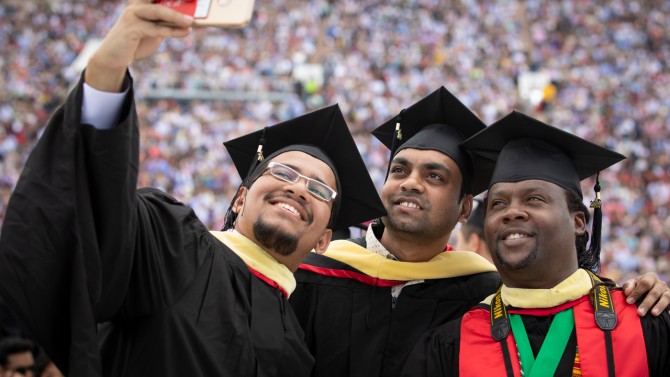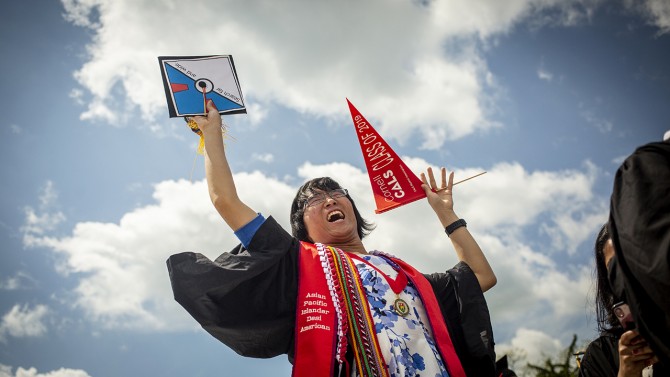At Cornell University’s 151st Commencement Ceremony May 26, President Martha E. Pollack stressed that the university’s founding vision of “any person … any study” is not only at the heart of what makes Cornell unique, but also explains broadly why education matters more than ever before.
Pollack welcomed approximately 5,500 graduates and 22,000 family members, faculty, trustees, staff and friends who filled Schoellkopf Field to celebrate the conferring of degrees.
Looking out over the full house, Pollack noted that Cornell’s first Commencement ceremony had been held in 1869, a century and a half ago. That graduation was very different, she said, and the parents of those first graduates had one notable advantage: “It was a lot easier for them to pick their own children out of the graduating class – because there were only eight of them.”
Pollack recalled Cornell’s radical beginnings, rooted in founder Ezra Cornell’s words: “I would found an institution where any person can find instruction in any study.”
“Even today, those words sound incredibly ambitious,” Pollack said. “But back then, they were downright revolutionary: the rallying cry of a university designed to change not just the lives of its students, but the future of our nation.”
A College of Agriculture and Life Sciences graduate celebrates at Schoellkopf Field.
That openness was so controversial to some, Pollack said, that it might have actually prompted some students to apply to Cornell simply because their curiosity had been piqued amid the warnings against it.
She described Ezra Cornell’s and first university president Andrew Dickson White’s establishment of Cornell University as created on the premise – still novel at the time – that education was a public good, “not just for the individual student, but for everyone.” By fostering innovation, creativity and a sharing of ideas across society, and not placing boundaries on learning, the new university set out to ultimately build a better world.
Addressing the Class of 2019, Pollack stressed that today, “when the importance of diversity and of interdisciplinarity in education is anything but a radical idea, we might still ask, ‘So, what’s so special about Cornell?'”








